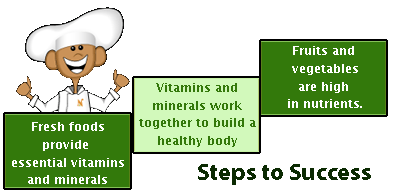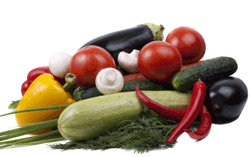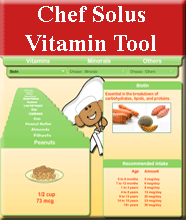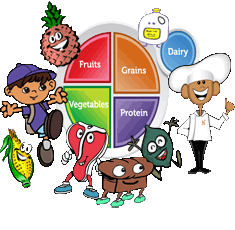
Nutrients are the components of food that are body needs to grow, fight disease, and provide energy to support all the body systems, organs and functions that keep your body healthy and strong. The body gets most of its nutrients from food. Foods that are high in nutrients are often called "nutrient dense" foods. These are foods like vegetables and fruits. Whole natural foods that come from the five food groups supply the body with the nutrients it needs.
Other foods are low in nutrients and only supply energy to the body. Energy that is not used is stored as fat. These are foods high in sugar and/or fat but have very little, if any, other nutrition. These are foods like cake, candy, soda, and chips.
Nutrients can be divided into several categories.
Food is made up of macronutrients. 
Macronutrients are protein, carbohydrates and fat. Every food is made up some or all of these three macronutrients. They are called macronutrients because the body needs large amounts of this to live. This is the main source of energy.
Each of these macronutrients can be broken down by the body to energy to perform the millions of actions the body performs every day to live. When the body has more macronutrients than it needs, it will store it as fat tissue.
Micronutrients can be broken up into vitamin and minerals. These are essential for the body to function properly. They are referred to as micronutrients because the body only needs a small amount of them (micrograms and milligrams).
 etting enough of all the vitamins the body needs if they are not eating a well balanced diet rich in nutrient dense foods. There are other reasons for vitamin deficiencies, always consult with your doctor or a registered dietitian.
etting enough of all the vitamins the body needs if they are not eating a well balanced diet rich in nutrient dense foods. There are other reasons for vitamin deficiencies, always consult with your doctor or a registered dietitian.



0 Comments